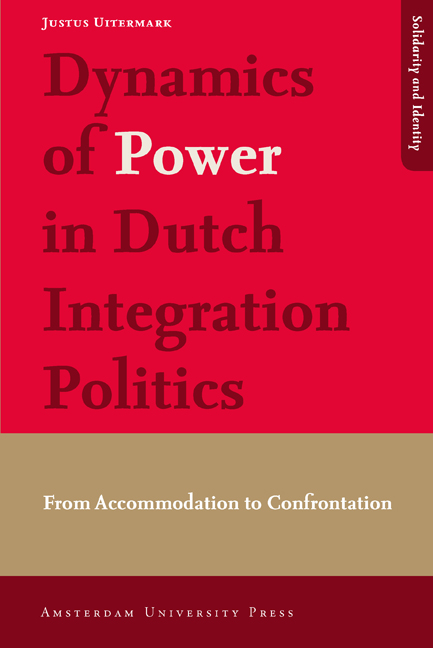5 - The Ascendancy of Culturalism
Published online by Cambridge University Press: 15 January 2021
Summary
In the image of the Dutch civil sphere sketched in the previous chapter, there is no place for a dominant conception of Dutch identity and culture. Relations between groups and their representatives were characterized by Pragmatism and the avoidance of conflict. The Netherlands was a country of minorities; it was both practically difficult and morally suspect to claim that one culture is worthier than another. Culturalism thus cannot be understood as a “Dutch discourse”. The promoters of Culturalism, in fact, sought to redefine the Netherlands and transform its political culture. This chapter shows that Culturalism is a discourse of ascendant elites who challenged this pragmatic political culture, its dignitaries and its institutions of accommodation. The chapter examines which elites embraced Culturalism, why they did so, and their relative power compared to their antagonists.
The first section identifies some of the milieus in which culturalist ideas and notions were cultivated before the 1990s. The subsequent sections analyze the evolution of Culturalism through an analysis of its most prominent representatives: Frits Bolkestein in the 1990s, Paul Scheffer immediately after 2000, Pim Fortuyn after 9/11, and Ayaan Hirsi Ali after the assassinations of Fortuyn (May 2002) and Theo van Gogh (November 2004). The sections first examine the discourses of these central figures and subsequently identify their bases of support. Finally, the chapter identifies the kind of power that culturalists exercise and the networks and class fractions that sustain it.
A pragmatic tradition and the seeds of Culturalism
There were already signs that politics was breaking out of the bounds of consensus and accommodation in the 1980s. While parliamentary elites and their associates in civil society were firmly committed to accommodation, actors on the margins were sowing the seeds of the symbolic revolution that would occur through shocks in 1991, 2000 and 2002-2005. We can distinguish three distinct milieus where Culturalism was cultivated in the 1980s, each with its own particular class composition and discursive codes.
The extreme right's challenge
First of all, there was the extreme right. Hans Janmaat and his Center Party (later the Center Democrats) saw minorities as intruders to be removed from the civil sphere.
- Type
- Chapter
- Information
- Dynamics of Power in Dutch Integration PoliticsFrom Accommodation to Confrontation, pp. 77 - 120Publisher: Amsterdam University PressPrint publication year: 2013



